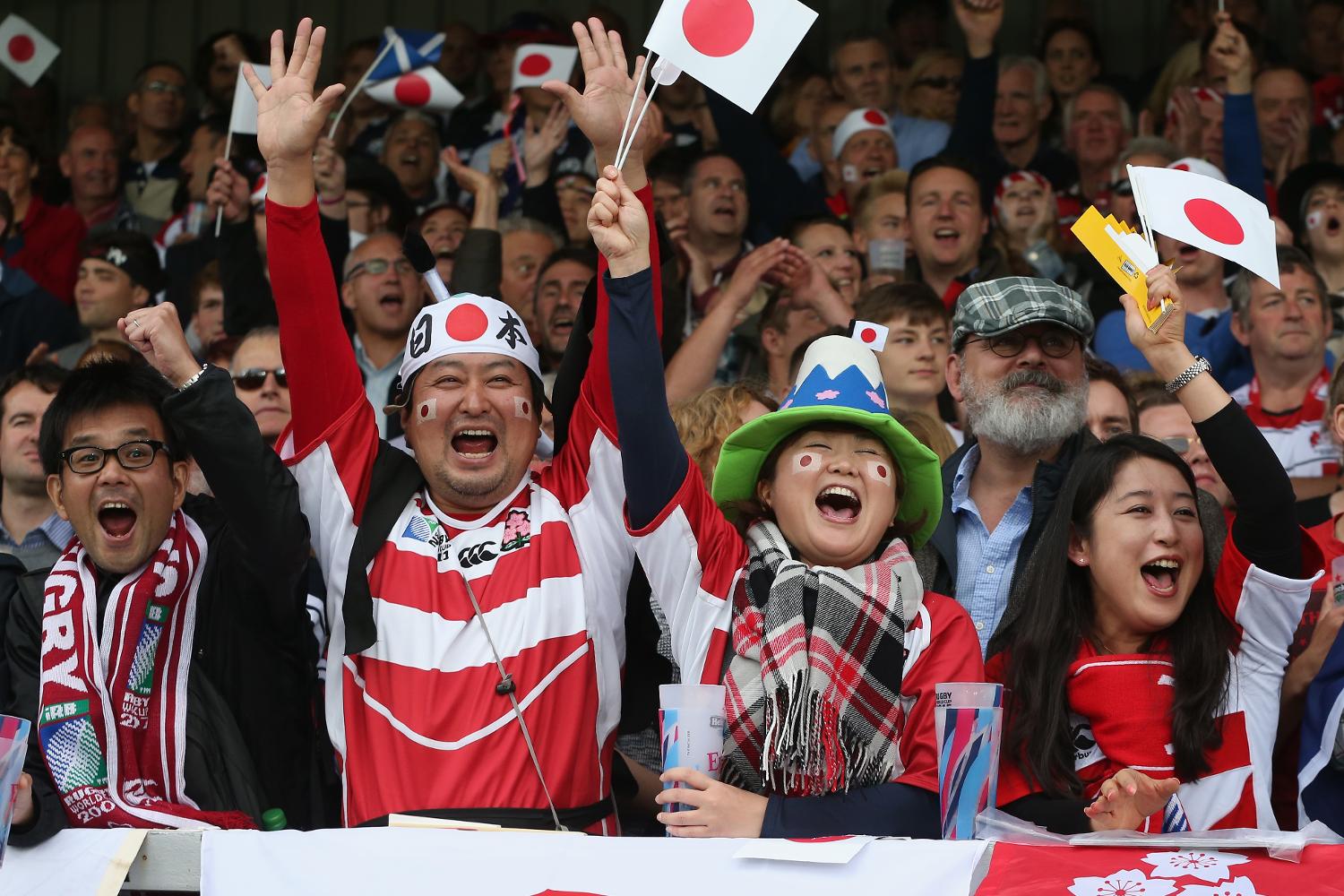Two world sport events, two divergent experiences.
The one, in Japan, is winning the hearts and minds of people the world over. The other, in Qatar, is attracting headlines that doom the country.
The Rugby World Cup couldn’t be more different to the athletics world championship, being hosted in Doha.
If there were reservations about the Japanese hosting the rugby, these evaporated within a day or two of the tournament beginning. Organisation has been slick, support has been overwhelming and the host team has been magnificent. The pictures flooding in, whether on television or social media, reflect an event in rude health.
Happy faces, warm banter and fun, energetic crowds have underpinned the Japanese experience.
Things are vastly different in Qatar. Shortly after the athletics championship was awarded to the Qataris, there were warnings that it was an accident waiting to happen. Without an athletics culture to speak of and with oppressive weather conditions, it was a hard sell.
But the IAAF, driven by pots of cash, awarded the rights to Qatar anyway. Sadly, that decision now looks like an epic mistake.
Excellent performances have taken place in a near-empty stadium and dehydration has afflicted many of the athletes, some of whom were hospitalised. It’s all proven to be an unhappy mess.
The irony is that the track facility is a technological marvel, as you’d expect given that it cost $1,6-billion to build. The championship was also blessed by attracting many of the world’s best athletes, including the incredible Shelly-Ann Fraser-Pryce, whom Michael Johnson this week labelled the greatest female sprinter of all time.
Too bad so few saw her capture her eighth world championship medal last weekend.
The IAAF trotted out the excuse that the scheduling – designed to accommodate a US audience chiefly – had affected local interest, as had the regional blockade.
Having earnestly tried to re-package athletics to an emerging market, the IAAF has instead gone backwards, having to ward off complaints not just from critics, but athletes themselves.
“Catastrophe,” was the word used by French decathlete Kevin Mayer.
“You see somebody down on the course and it’s just extremely grounding and scary,” remarked Canadian marathoner Lyndsay Tessier.
The contrast with Japan couldn’t be starker. For instance, when issues cropped up around catering at stadia, the organising committee hastily changed their rules, allowing people to bring their own food in. A relaxed mood prevailed.
What Japan has demonstrated is the importance of ensuring that locals are emotionally invested in an event. This is why teams are summarily adopted by local Japanese, many of whom disguise their lack of rugby knowledge with sheer exuberance for everything that surrounds the game.
As legacies go, this might be one of the greatest in rugby’s long history; the very instance that turns the Asian rugby beast on.
Elsewhere, the tragedy is that sport will take little notice of athletics’ folly. In December, Saudi Arabia will be hosting the heavyweight championship fight between Andy Ruiz and Anthony Joshua, a cynical cash-grab that reflects poorly on the fighters and organisers.
“Sport washing,” they call it, and with good reason.
Sport remains a powerful vehicle, both for lifting the mood of a nation – witness the 1995 Rugby World Cup and the 2010 Soccer World Cup – and for advancing political ends.
Too bad morality sometimes gets forgotten in the race to the bank. © Sunday Tribune

